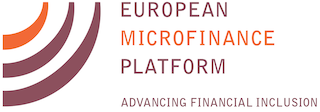 The first day of European Microfinance Week 2023 began this morning with meetings of several of the European Microfinance Platform’s (e-MFP’s) Action Groups. At the Investors Action Group session, Cécile Lapenu of CERISE discussed the recent increase in demand for accountability regarding claims of positive client impact. What really makes an investor an impact investor? How can we measure impact in a way that is convincing and also efficient?
The first day of European Microfinance Week 2023 began this morning with meetings of several of the European Microfinance Platform’s (e-MFP’s) Action Groups. At the Investors Action Group session, Cécile Lapenu of CERISE discussed the recent increase in demand for accountability regarding claims of positive client impact. What really makes an investor an impact investor? How can we measure impact in a way that is convincing and also efficient?
The recently published 60 Decibels Microfinance Index 2023 addresses some of these questions. The study, which is based on a survey of 32,000 microfinance clients in 32 countries, indicates that access to financial and non-financial services other than credit leads to deeper impact. Regarding credit services, group lending is associated with

